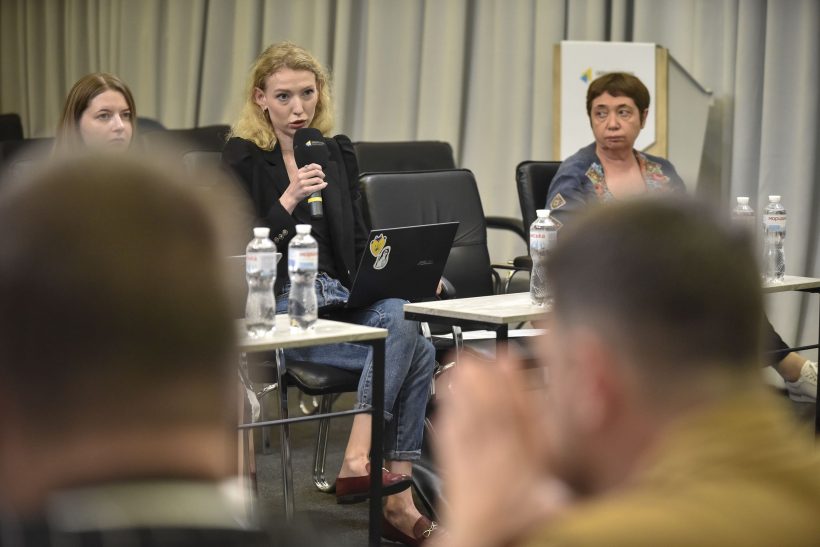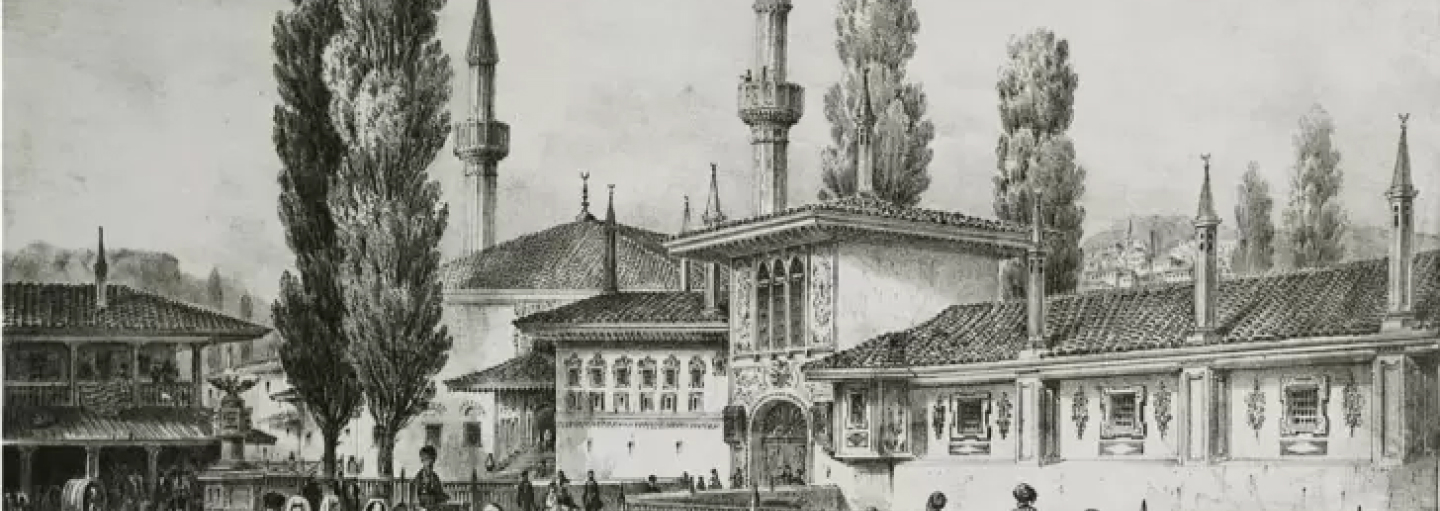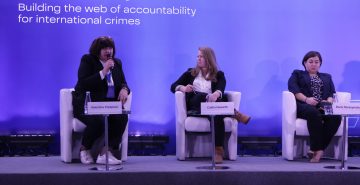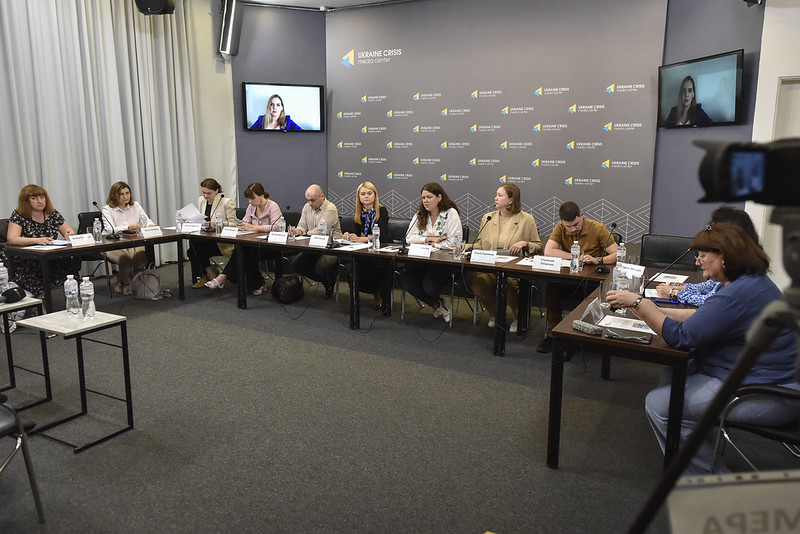

Closed discussion and presentation of the Research “Commemorative plaques as the evidence of crimes of the Russian Federation in Crimea”
On July 27, our organization – CCE “Almenda” – organized the closed presentation and the discussion of the Research “Commemorative plaques as the evidence of crimes of the Russian Federation in Crimea” which took place at the Ukraine Crisis Media Center.
Since the beginning of the full-scale invasion, Russia began to actively install commemorative plaques in the educational institutions of the occupied Crimea, dedicated to the soldiers who died during the so-called “Special Military Operation”. Here are some of the key moments from the Research:
- Part of the plaques are dedicated to servicemen who were children during the occupation of Crimea in 2014, and therefore, since 2014, studied according to the Russian programs and were subjected to Russian ideological influence, including Russian militarism;
- Plaques are being installed only on the walls of the educational institutions, where the fallen ones used to study (mostly these are secondary education institutions: schools and technical schools), in order to exert the ideological influence on the younger generation of Crimean schoolchildren.
After a short presentation of the Research by its author – Anastasiia Vorobyova, and speakers’ reports, a closed discussion took place, in which representatives of the state bodies and public organizations, institutions of higher education participated.
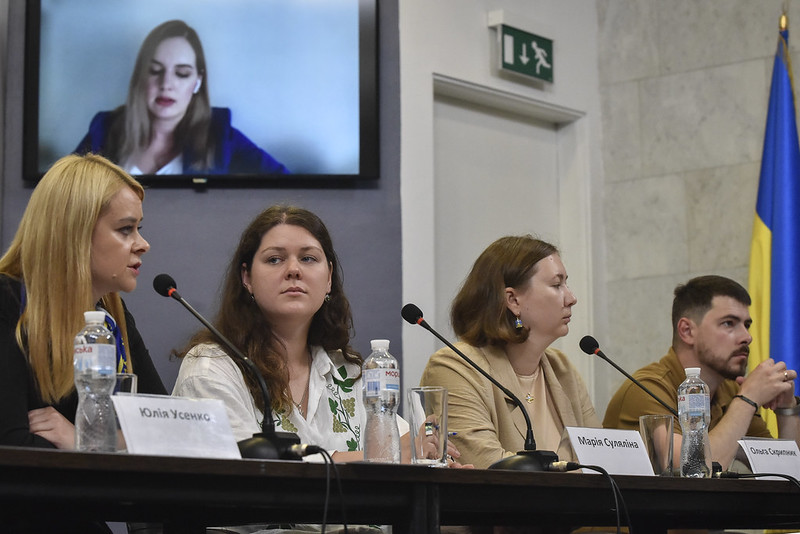

Yulia Usenko. The closed presentation of the Research “Commemorative plaques as the evidence of crimes of the Russian Federation in Crimea” by the Public Organization CCE “Almenda”
At the beginning of the event, Yulia Usenko, the Head of the Department for Protection of Children’s Interests and Combating Violence of the Office of the General Prosecutor of Ukraine, emphasized the importance of the discussed topic – militarization and indoctrination of children in the occupied territories: “This is an extremely important focus of our attention, so that we have the opportunity to document, record and actually create historical memory of what the Russian federation is doing to our children, starting from 2014”.
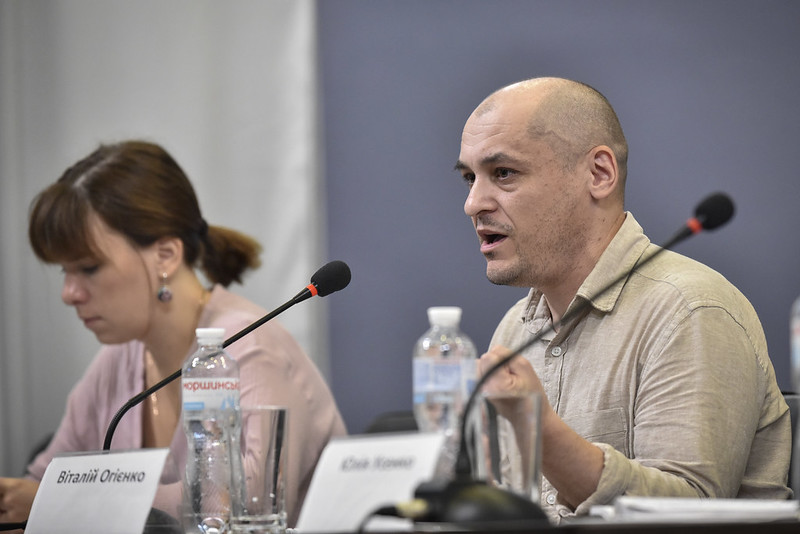

Vitaliy Ohiyenko. The closed presentation of the Research “Commemorative plaques as the evidence of crimes of the Russian Federation in Crimea” by the Public Organization CCE “Almenda”
Olha Skrypnyk, the Chairperson of the Crimean Human Rights Group Board, briefly spoke about the practice of the illegal forced mobilization in Crimea. And Vitaliy Ohiyenko – the Chief specialist of the Department for the Study of Totalitarian Regimes under the Office of Scientific Support of the Policy of National Memory of the Ukrainian Institute of National Remembrance, spoke about the problems of the formation of joint, collective memory of Ukrainians: about the challenges and the necessary actions.
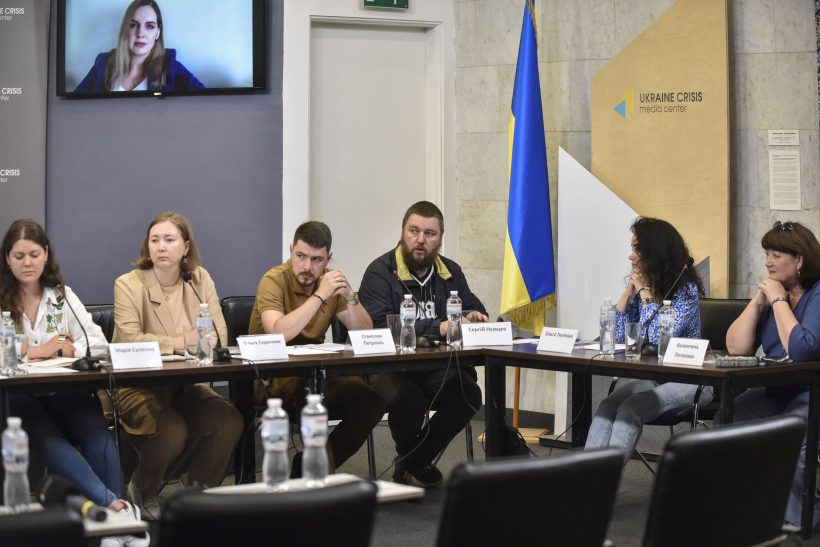

Olha Skrypnyk. The closed presentation of the Research “Commemorative plaques as the evidence of crimes of the Russian Federation in Crimea” by the Public Organization CCE “Almenda”
During the discussion, the participants of the event discussed the following issues:
- What should be the attitude towards children, who undergo militarization and are brought up on the “heroic feats” of the people on the commemorative plaque?
- What should be done to the Russian memorialization of the memory after the de-occupation?
- Can we already lay the ground for preventing internal conflicts between children and youth after the de-occupation, who were brought up having different heroes?
The Deputy Permanent Representative of the President of Ukraine in the Autonomous Republic of Crimea – Olha Kuryshko, the representative of the Office of the Prosecutor General of Ukraine – Stanislav Petrenko, the representatives of the Secretariat of the Human Rights Commissioner of the Verkhovna Rada of Ukraine – Alla Tarasyuk and Olha Olifer, the prosecutor of the Prosecutor’s Office of the Autonomous Republic of Crimea and the city of Sevastopol – Olha Pirogova, the representative of the Ministry of Reintegration of the Temporarily Occupied Territories – Olha Tylinina, the representative of Volodymyr Dahl East Ukrainian National University – Svitlana Kuzmina, the lawyer of the Regional Human Rights Center – Kateryna Rashevska, and the head of the national advocacy department of the CCE “Almenda” – Valentyna Potapova, joined the discussion.
The main issue of the discussion is what international institutions and Ukrainian state bodies need to do today to slow down the process of militarization and upbringing of “universal soldiers”, and how to cover this topic correctly so as not to support the international narrative that “de-occupation of Crimea will lead to internal conflicts”.
During the discussion, many ideas and suggestions were put forward regarding:
- The legal qualification of Russia’s actions regarding the militarization of children in the occupied territories and their conscription into the Armed Forces of the Russian Federation;
- Communication and coverage in the Ukrainian society of the issue of consequences of the militarization of children in the occupied Crimea today and after the de-occupation.
You can read the research “Commemorative plaques as the evidence of Crimes of the Russian Federation in Crimea” by the link.
The monitoring report was prepared by the Center for Civic Education “Almenda” as a part of the project “Destroyed Childhood: Bringing Justice”. The content of this document is a sole responsibility of the Public Organization Center for Civic Education “Almenda” and does not necessarily reflect the position of Civil Rights Defenders.

